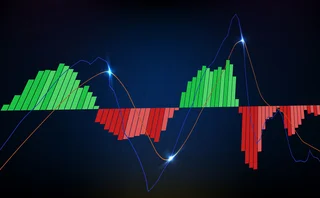
Hedge funds: Absolute satisfaction
Germany was one of the first European countries to liberalise hedge funds investment, but its hedge fund and fund of hedge funds markets have failed to take off. Even so, investor demand for absolute returns has prompted an array of funds of hedge funds-linked certificates and certificates featuring alpha structures
Germany remains the largest structured products market in Europe, and when the government implemented the Investment Act and Investment Tax Act in 2004, it also became one of Europe's most liberalised markets for direct investment in hedge funds. Despite the fact that the acts allow domestic and foreign firms to set up hedge funds, observers estimate that strict disclosure requirements have resulted in the creation of less than 40 hedge funds in Germany.
The German regulator, Bundesanstalt fur Finanzdienstleistungsaufsicht (BaFin), does not allow public distribution of single hedge funds, although some high-net-worth investors are able to access to such funds via certificates. But there is plenty of retail demand for absolute return, and so a range of certificates linked to funds of hedge funds have been launched to give the mass market access to such strategies.
"BaFin had some problems defining what constitutes a hedge fund," says Peter Scherer, a partner at law firm Clifford Chance in Frankfurt. "Because of the high level of disclosure that is required, two hedge funds have now returned their licences to BaFin."
Not many funds of hedge funds been established in Germany either. "Fund of hedge funds managers need to obtain and disclose a lot of information from hedge funds - including investment strategies," Scherer says. "No hedge fund wants to disclose this level of information."
Leverage
Since the Investment Act came into force, both domestic and foreign funds of hedge funds can be distributed publicly in Germany. Foreign funds of hedge funds can be distributed publicly provided they are supervised by their domestic regulator and that regulator is prepared to work with BaFin. And even if a foreign fund fails to meet those requirements it can be still be distributed via private placement.
Although the mass retail market isn't performing very well in terms of sales volumes, it's a different story in the private banking space. In particular, investors in funds of hedge funds often target a specific level of return, says Stefan Armbruster, director, certificates and warrants structuring and marketing at Deutsche Bank in Frankfurt.
Private banks, for example, have been distributing fund of hedge funds-linked structured products. According to one Frankfurt-based structurer at a private bank in Germany, who asked not to be named, there is a strong demand for certificates linked to top-performing single hedge funds.
However, according to statistics complied by Derivate Forum, a trade association whose members include certificate issuers such as ABN Amro, BNP Paribas, Deutsche Bank, Dresdner Bank, DZ Bank, Goldman Sachs, Sal Oppenheim, West LB and HypoVereinsbank (HVB), capital invested in hedge funds-linked certificates - including those linked to hedge funds indexes and those linked to funds of hedge funds - fell by 12.3% in 2006 from the previous year.
At first glance, the drop seems to suggest that the appetite for hedgefunds has tailed off. This could be attributed to negative press coverage as well as criticisms from politicians, who have been demanding even tighter disclosure requirements for equity investors.
However, the figures do not paint a full picture of the fund of hedge funds-linked products market in Germany, Armbruster says. "The banks that have a strong focus on hedge funds - Commerzbank, Societe Generale and Merrill Lynch, for example - are not members of Derivate Forum," he says. "And we don't provide figures from private placements to the forum either. The statistics released by the forum represent only a small slice of the products for public distribution."
Last year, Deutsche Bank issued structured products linked to the shares of the UK-based MW Tops, the largest publicly traded, closed-ended European hedge fund, managed by London-based hedge fund firm Marshall Wace. The shares of the offering, now traded on Euronext Amsterdam, were highly over-subscribed and orders were scaled back to an offer size of EUR1.5 billion ($1.97 billion) in December last year.
MW Tops invests in Marshall Wace's existing funds that bet on rises and falls in stocks. The fund aims to target annual returns of 12-16% net of fees and expenses, with a volatility of 5-7%.
"In terms of hedge fund-linked investments, Deutsche Bank has launched a lot of products in the past 18 months," Armbruster says. "In particular, products have been developed for our own private banks. Leveraged products, for example, which allow investors to take an aggressive approach to the performance of the underlying fund of hedge funds," he says. Deutsche Bank has so far issued one Delta-1 certificate and two leveraged products linked to the shares of the listed closed-ended investment company MW Tops.
Typically, the performance of a leveraged product, whether it is positive or negative, is multiplied by a certain factor. One of the leveraged products issued by Deutsche Bank based on the Marshall Wace fund of hedge funds has a leverage factor of two and the other has a leverage factor of four.
Other structured products providers have also seen strong interest from private banks in fund of hedge funds-linked products.
Markus Bertsch, Frankfurt-based head of risk management products for Germany at UBS, says the Swiss bank has many funds of hedge funds and single hedge funds on its platform, and has issued plenty of structured products linked to these funds. "We have done a substantial amount of structured products in the form of delta-1, leveraged products, capital-protected notes, constant proportion portfolio technique and options/warrants," he says.
For example, UBS launched a leveraged certificate in January linked to a fund of commodity funds that provides access to the best-performing commodity-focused hedge fund managers. The certificate, distributed by private placement, offers exposure with a leverage factor of three to the GAM Multi-Commodities fund using a dynamic leverage technique. Exposure to the underlying fund of hedge funds is not constant, but is adjusted to reduce any downside performance in the certificate.
Alpha structures
Certificates remain the favourite investment vehicle of many German investors seeking absolute returns. And for firms without a prominent hedge funds business, express certificates and guaranteed certificates with alpha structures provide an alternative means of delivering alpha. "Alpha structures compare two underlyings," says Birgit Lutzenberger, a director at HVB in Munich. "For example, you can compare the performance of the DJ Eurostoxx Select Dividend 30 index to the DAX. As long as the dividend index outperforms the DAX, investors will receive capital gains, even if market goes down."
An example of a certificate with this alpha structure is the HVB Favorit BestExpress Zertifikat. The maximum investment term of the certificate is four years, it has an annual redemption feature and a coupon will be paid if the DJ Eurostoxx Select Dividend index outperforms the DAX. HVB also offers a partially protected version of the same product. "At the moment, we don't envisage a crash scenario," Lutzenberger says. "However, there is a moderate potential for the market to decline in the short term."
Most structured products providers expect the certificates market to continue growing. But issuers also believe that, along with other types of certificate, sales of fund of hedge funds-linked certificates will be affected when the Markets in Financial Instruments Directive (Mifid) comes into force in November this year.
"It is not clear at this point what the effects of MiFid will be on structured products, but it can affect the transparency of products issued," says Bertsch at UBS.
Only users who have a paid subscription or are part of a corporate subscription are able to print or copy content.
To access these options, along with all other subscription benefits, please contact info@risk.net or view our subscription options here: http://subscriptions.risk.net/subscribe
You are currently unable to print this content. Please contact info@risk.net to find out more.
You are currently unable to copy this content. Please contact info@risk.net to find out more.
Copyright Infopro Digital Limited. All rights reserved.
As outlined in our terms and conditions, https://www.infopro-digital.com/terms-and-conditions/subscriptions/ (point 2.4), printing is limited to a single copy.
If you would like to purchase additional rights please email info@risk.net
Copyright Infopro Digital Limited. All rights reserved.
You may share this content using our article tools. As outlined in our terms and conditions, https://www.infopro-digital.com/terms-and-conditions/subscriptions/ (clause 2.4), an Authorised User may only make one copy of the materials for their own personal use. You must also comply with the restrictions in clause 2.5.
If you would like to purchase additional rights please email info@risk.net
More on Equity markets
The future of equity derivatives: perspectives for UK equities and dividends
Managing equity and dividend risk today requires new trading strategies and products. In a webinar convened by Risk.net and hosted by Eurex, three experts discuss what’s next for the UK and European markets.
Follow the moneyness
Barclays quants extend Bergomi’s skew stickiness ratio to all strikes
What gold's rise means for rates, equities
It has been several years since we have seen volatility in gold. An increase in gold volatility can typically be associated with a change in sentiment and investor behavior. The precious metal has surged this year on increased demand for safe haven…
Breaking the collateral silos – Navigating regulation with a strategic alternative
Emmanuel Denis, head of tri‑party services at BNP Paribas Securities Services, discusses why financial institutions must rethink old practices of collateral management and instead adopt a tri-party approach, with which equities can be managed as…
BAML and Morgan Stanley shift Indian P-notes to Europe
Tax changes trigger move out of Mauritius and Singapore
Volatility traders wrestle with digital risk of Brexit
Skew on major indexes leaps after market wakes up to risks of UK's referendum
New US tax rules could hamper ETN market, dealers warn
IRS’s forthcoming Section 871(m) rules could inadvertently capture legacy ETNs
Dealers fear death of dividend risk premia strategy
Shrinking dividend futures premium hurting investors







